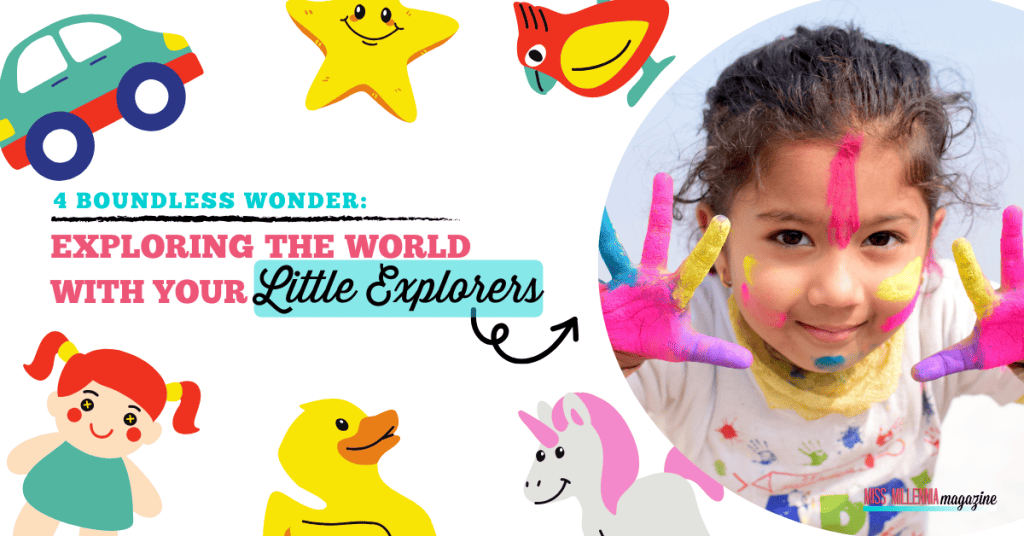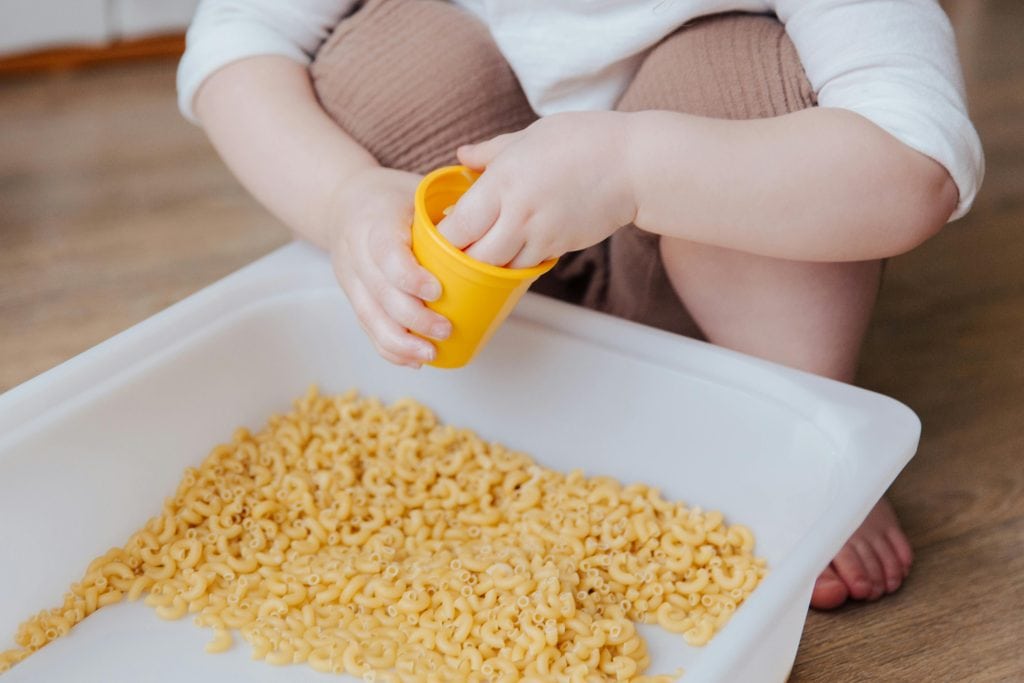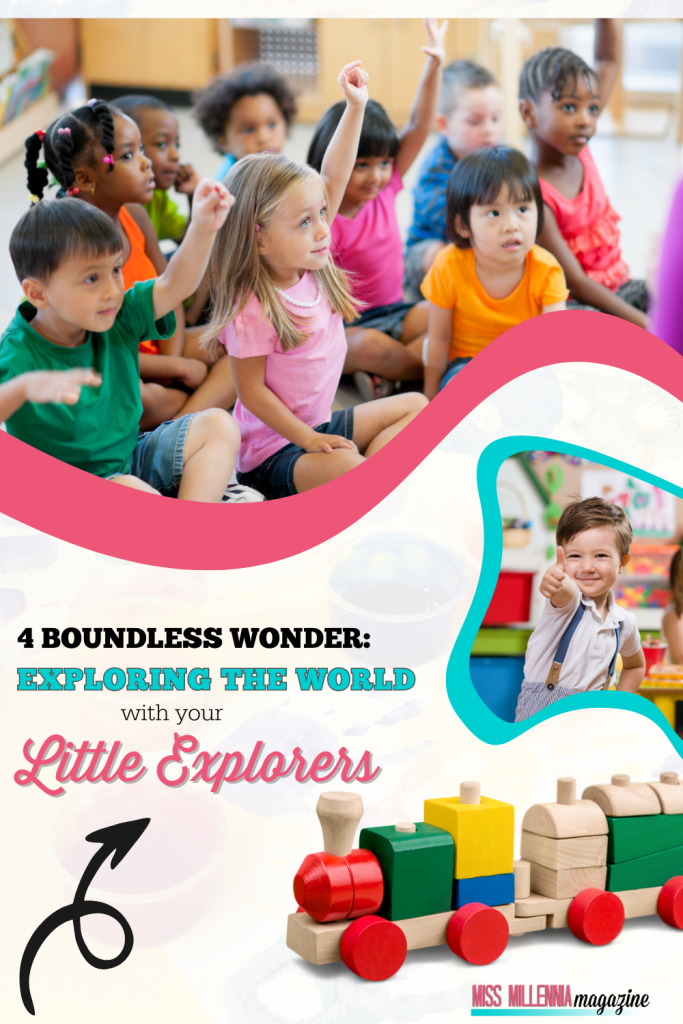4 Boundless Wonder: Exploring the World with Your Little Explorers

The preschool years are magical when curiosity knows no bounds and imagination runs wild. As parents and educators, we have the incredible privilege of nurturing these tiny trailblazers and guiding them as they embark on a journey to explore the world’s wonders. In this article, we’ll delve into a treasure trove of activities specifically crafted for little explorers to ignite their curiosity, stimulate their senses, and foster a love for learning that will last a lifetime.
#1) Understanding the Curious Minds of Little Explorers
Preschoolers learn through play, and play is their language of exploration. Structured and unstructured play activities form the foundation of their understanding of the world. Children develop crucial cognitive, social, and emotional skills through play.

Preschoolers experience the world through their senses. Activities that stimulate their senses—sight, sound, touch, taste, and smell—contribute significantly to their cognitive development. Designing activities that engage multiple senses enhances their learning experience.
#2) Engaging Activities for Tiny Trailblazers
Sensory Exploration
Discover the joy of sensory exploration through carefully crafted activities. From textured playdough to sensory bins filled with rice or sand, these experiences engage multiple senses, promoting cognitive development and strengthening neural connections in your preschooler’s growing brain.
Create a sensory station with sand, rice, or water bins. Let preschoolers explore different textures, encouraging them to describe what they feel. Add cups, spoons, and small toys for an extra layer of exploration.
Nature Scavenger Hunt
Take your little explorers outdoors for a nature scavenger hunt. Provide a list of items to find, such as leaves, rocks, or flowers. This activity fosters a connection with nature and sharpens observational skills.
Storytime Adventures
Open the door to a world of imagination through the magic of books! Explore interactive storytelling techniques, engage in character dress-ups, and create a cozy reading nook. Fostering a love for reading at an early age lays the foundation for lifelong learning and language development. Choose age-appropriate books with vibrant illustrations and engaging narratives. Encourage children to ask questions, make predictions, and even act out parts of the story to enhance comprehension.
Transform letter learning into an exciting adventure! Use games, crafts, and activities to introduce letters and sounds. This hands-on approach to literacy enhances pre-reading skills and makes learning an enjoyable and memorable experience.
Messy Art Exploration
Preschoolers love getting their hands dirty, so why not channel that creativity into messy art projects? Finger painting, playdough sculpting, and exploring various art mediums allow them to express themselves freely while developing fine motor skills.

Transform ordinary household items into magical realms! From cardboard box castles to blanket forts, encourage imaginative play that transcends the boundaries of reality. Watch your little ones embark on epic adventures, enhancing their cognitive and social development through creative role-playing.
Science Experiments for Little Scientists
Simple science experiments can captivate the minds of preschoolers. Create a volcano with baking soda and vinegar, explore color mixing with water and food coloring, or observe the changes in plants as they grow. These hands-on experiments nurture a love for scientific inquiry.
Music and Movement
Introduce the magic of music into your child’s world. Create homemade instruments, explore rhythm and movement, and sing to your favorite tunes. This will foster a love for music and enhance auditory perception and language development.
Take your musical adventures outdoors by organizing a Nature Symphony Scavenger Hunt. Equip your little ones with homemade instruments and explore the wonders of nature. Encourage them to match the sounds of their instruments with the rustling of leaves, birds chirping, or a stream’s gentle flow. This activity enhances auditory discrimination and deepens their connection with the natural world.
Puzzles and Problem-Solving
Introduce age-appropriate puzzles and games that challenge preschoolers’ problem-solving abilities. Whether a simple jigsaw puzzle or a matching game, these activities stimulate cognitive development and critical thinking.
Kitchen Creations
Involve little ones in the kitchen for some simple cooking or baking activities. Measure ingredients together, stir, and let them experience the transformation of raw ingredients into a delicious treat. This hands-on experience fosters math skills and a sense of accomplishment.
Imaginative Play Zones
Create themed play zones that allow preschoolers to engage in imaginative play. Whether it’s a pretend kitchen, doctor’s office, or construction site, these spaces provide an avenue for storytelling, role-playing, and social interaction.
Outdoor Adventures
Step outside and let nature become the canvas for your preschooler’s exploration. Create scavenger hunts to discover leaves, rocks, and even bugs. These activities promote a love for the outdoors and enhance observation skills, teaching your little ones about the fascinating world around them.
Fuel the energy of your tiny adventurers with outdoor games that encourage physical activity. From classic games like tag and hide-and-seek to nature-inspired yoga, these activities promote a healthy lifestyle and enhance gross motor skills and coordination.
#3) Cultivating a Love for Learning
Encouraging Questions
Preschoolers are naturally curious and love asking questions. Encourage this curiosity by taking the time to answer their queries and asking open-ended questions that prompt them to think critically.
Fostering a Growth Mindset
Instill a growth mindset by praising effort rather than innate abilities. Reinforce the idea that mistakes are part of the learning process and provide opportunities for resilience and problem-solving.
Celebrating Achievements
Create a positive learning environment by celebrating achievements, no matter how small. Display artwork, share stories, and acknowledge their efforts, fostering a sense of pride and motivation.
#4) Parent and Educator Partnership
Communication and Collaboration
Effective communication between parents and educators supports a child’s learning journey. Share insights into a child’s interests, strengths, and areas for growth, creating a collaborative approach to their development.
Resource Sharing
Exchange ideas and resources with other parents and educators. Whether it’s recommended books, educational apps, or creative activity ideas, a collective effort enhances the learning experience for preschoolers.
Professional Development for Educators
Continuous learning for educators ensures they stay abreast of the latest in early childhood education. Workshops, seminars, and networking opportunities contribute to their ability to provide enriching experiences for preschoolers.
Conclusion: Nurturing Tomorrow’s Explorers
In concluding our exploration into activities for preschoolers, the key takeaway is the profound impact that intentional, engaging experiences can have on a child’s development. By embracing the innate curiosity of tiny trailblazers, we unlock a world of wonder and learning. These activities contribute to holistic growth, Whether through sensory exploration, creative arts, or nature adventures.
The activities outlined in this guide are not just entertaining; they’re designed to nurture various aspects of your child’s development. So, lace up those tiny shoes, grab a hand, and let the adventure begin – because with these activities, you’re not just exploring the world but creating a lifetime of cherished memories.
